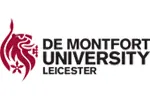Diagnostic radiographers play a key role in modern healthcare. Approved by the Health and Care Professions Council (HCPC), on this course you will be introduced to a variety of imaging modalities and explore how these are used in relation to imaging different body systems, as well as developing skills valued in healthcare professionals such as patient care, communication and multidisciplinary teamwork.
Our new radiography suite simulates real work settings, allowing you to put theory into practice. Teaching is delivered by academic staff who are actively engaged in clinical radiography, as well as by visiting lecturers working in health, education and radiology sectors.
Throughout the three-year programme you will have the opportunity to consolidate your learning through a variety of clinical placements at NHS trusts, to help you develop the skills sought by graduate employers. On completion, graduates will be eligible to register with the HCPC and practise as a diagnostic radiographer.
Key features
- Eligibility to apply for registration with the Health and Care Professions Council (HCPC) as a Diagnostic Radiographer on successful completion of this programme.
- Learn how to use a wide range of imaging techniques and technology to produce high-quality diagnostic images to aid the diagnosis and treatment of injury and disease.
- You will gain clinical exposure from year one of the course, while strong links and integrated work placements with local NHS trusts and private providers, will allow you to put theory to practice.
- Consolidate learning in our industry standard digital x-ray suite, where you will be taught radiographic examination techniques before practicing on real patients in regional hospital trusts.
- You will study a range of topics including introduction to the role of the healthcare professional, anatomy and physiology of the musculoskeletal system, cross-sectional imaging and practice placements.
- Gain international experience through our DMU Global programme, which has previously seen Allied Health Professions students visit schools and community groups in India and supported deaf children in The Gambia.
- Once qualified, radiographers can go onto specialise in areas such as computed tomography, magnetic resonance imaging, ultrasound, clinical reporting of x-ray imaging, research, teaching and management.
From September 2020, all students studying Diagnostic Radiography will receive at least £5,000 a year with up to £3,000 additional funding available. Further information, including eligible allied health professional courses, can be found on the NHS website.



